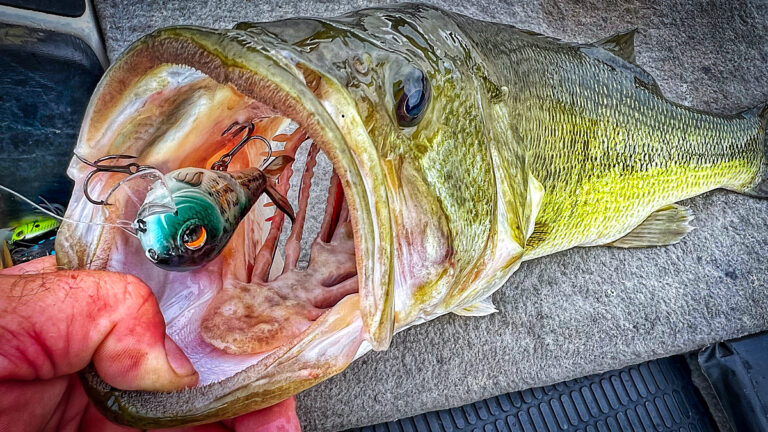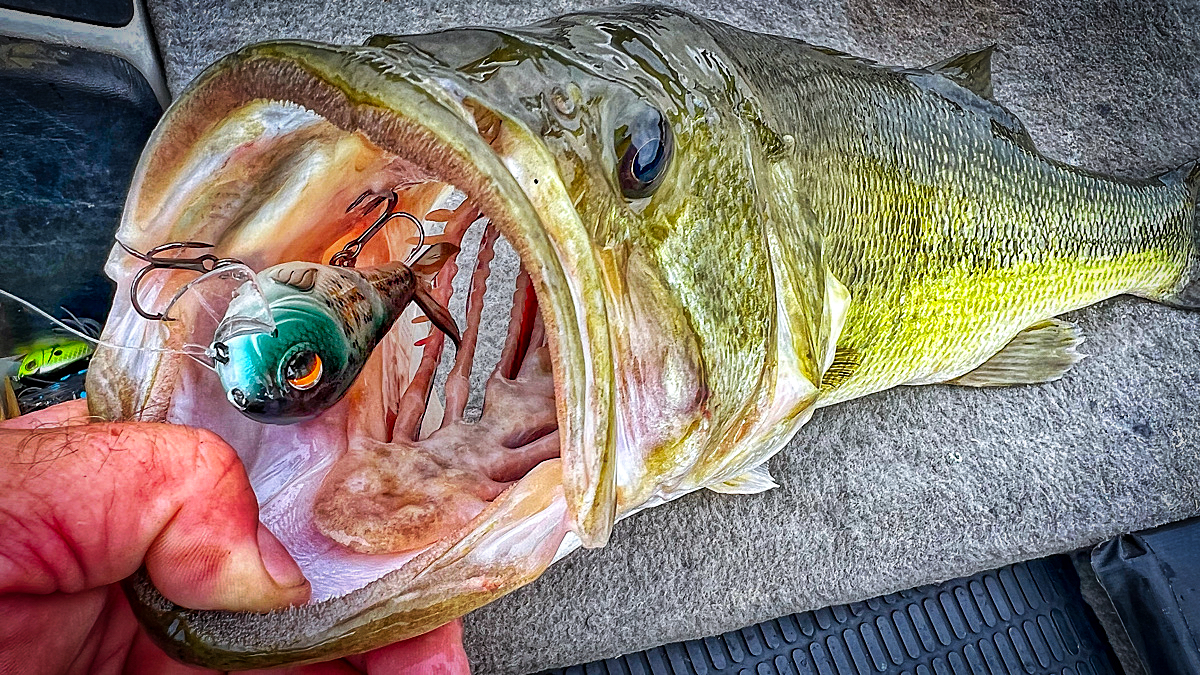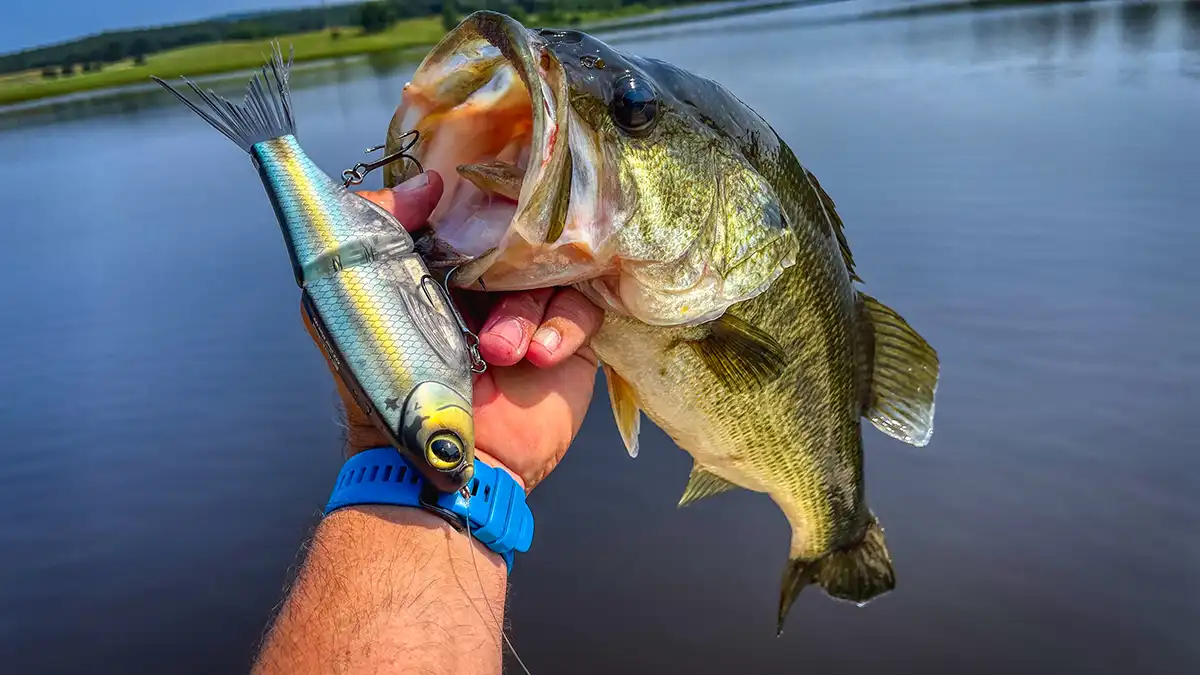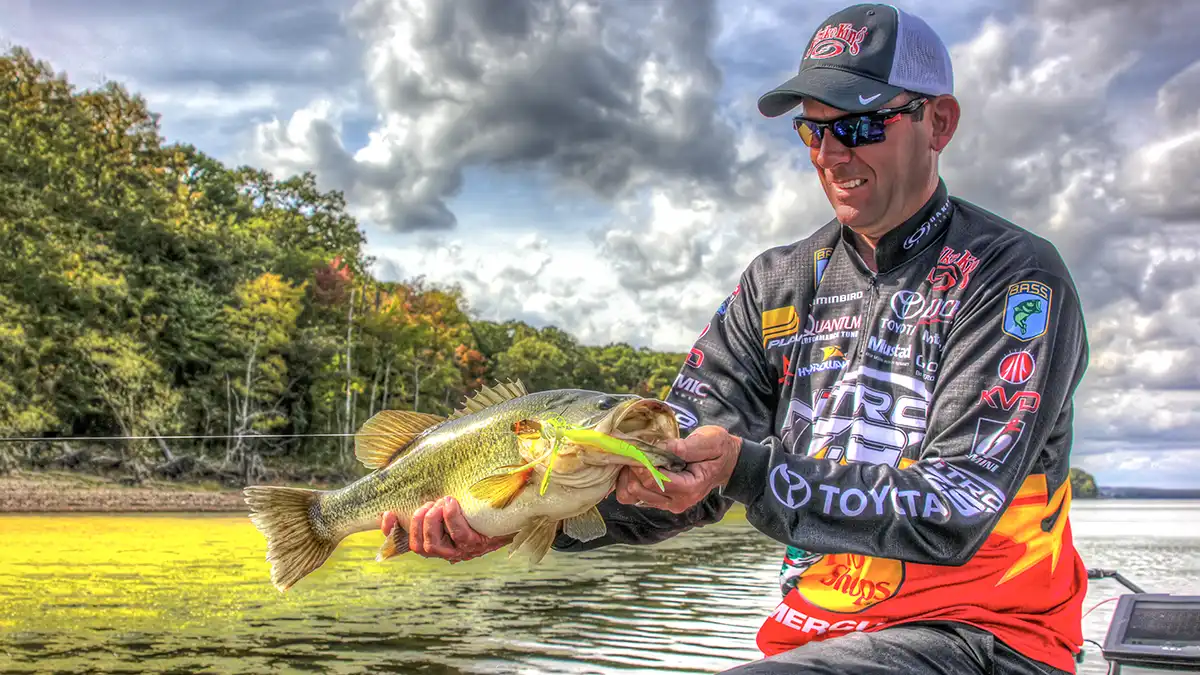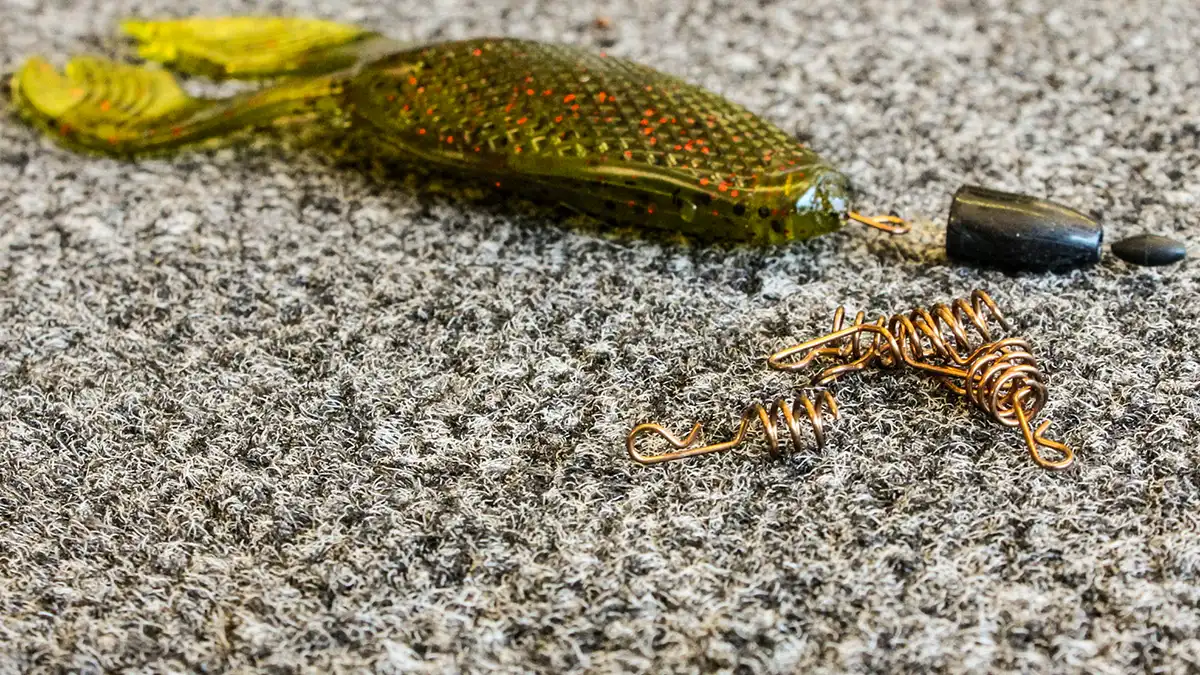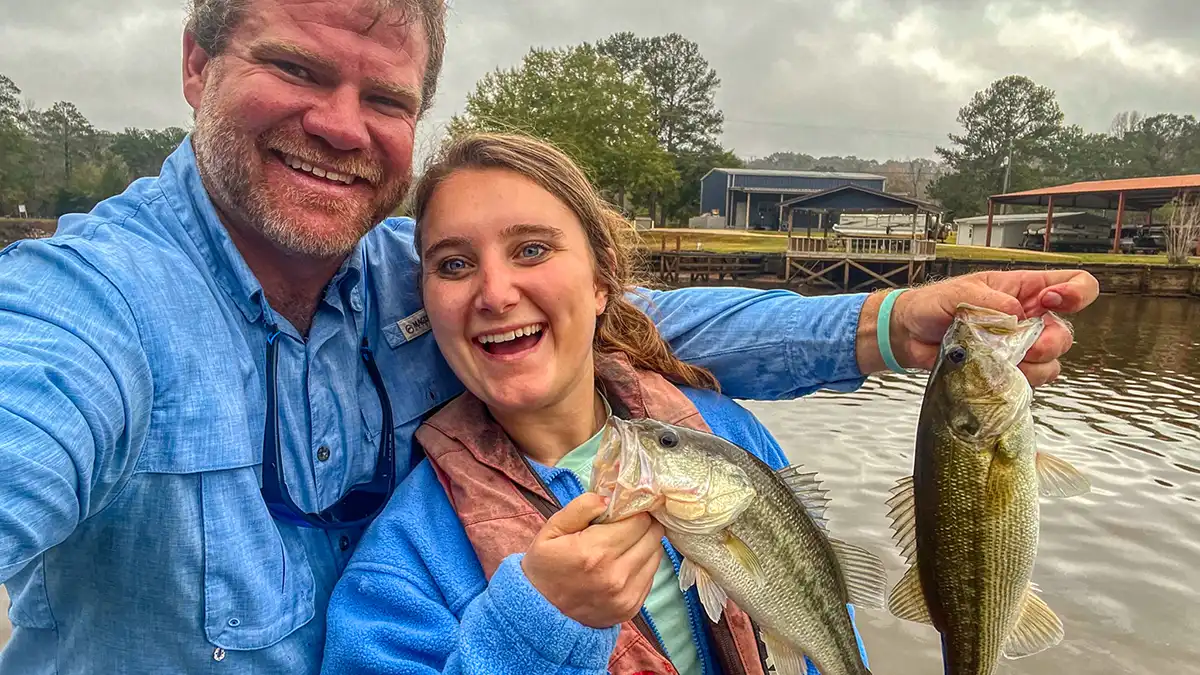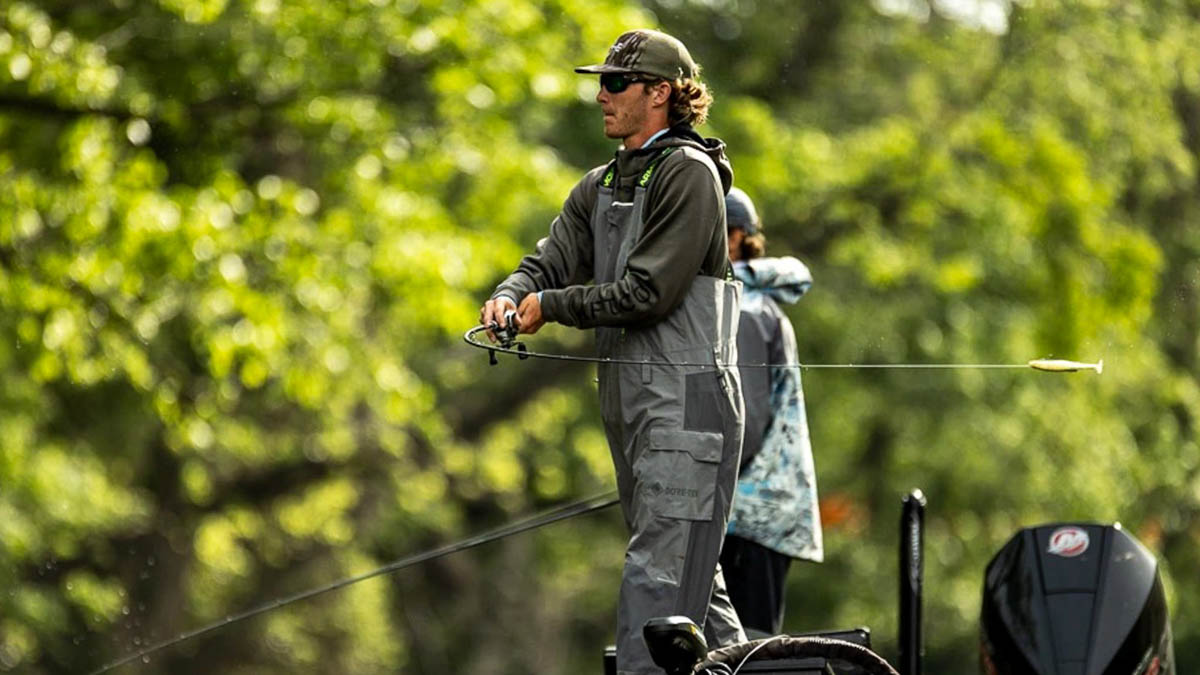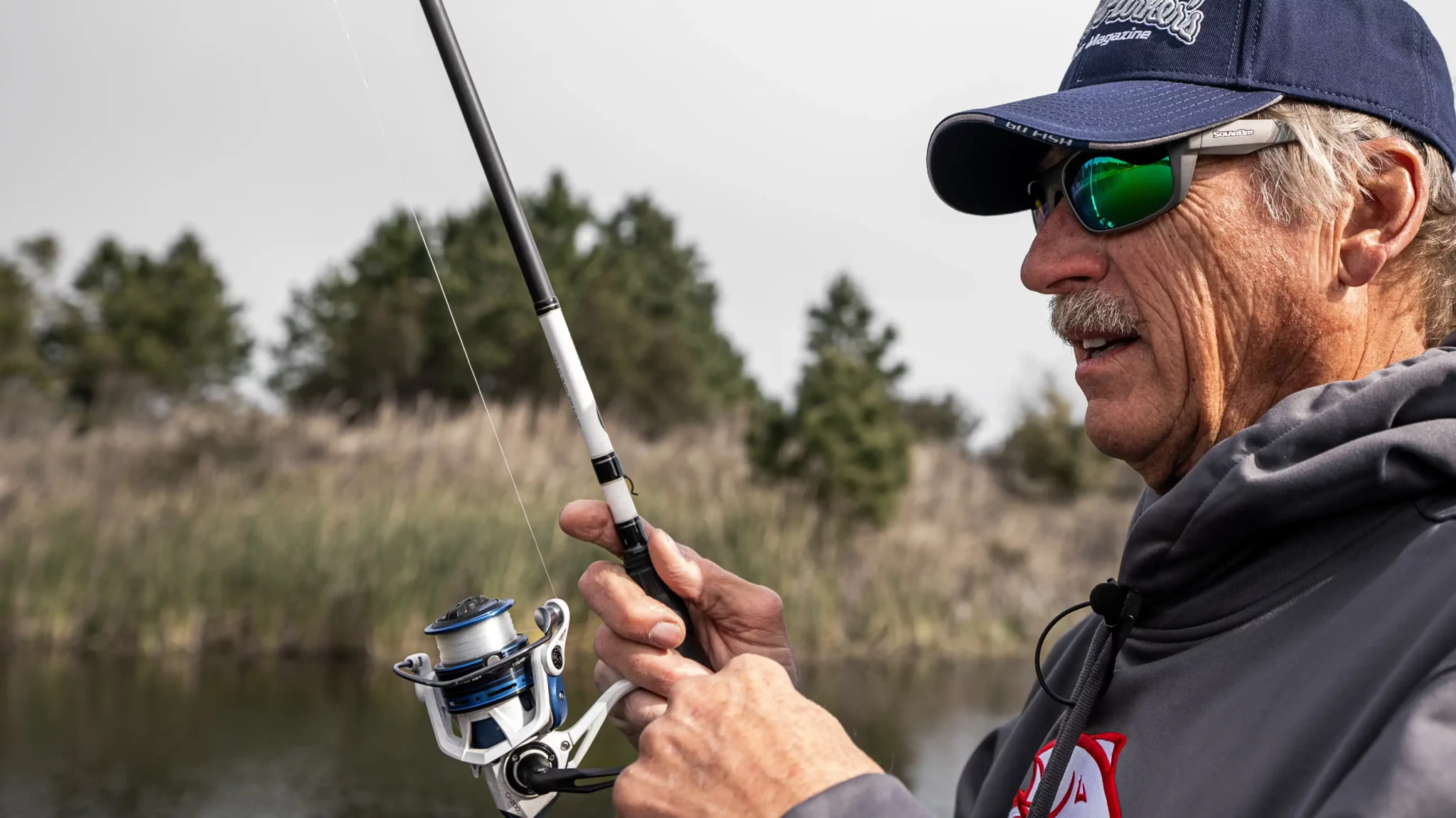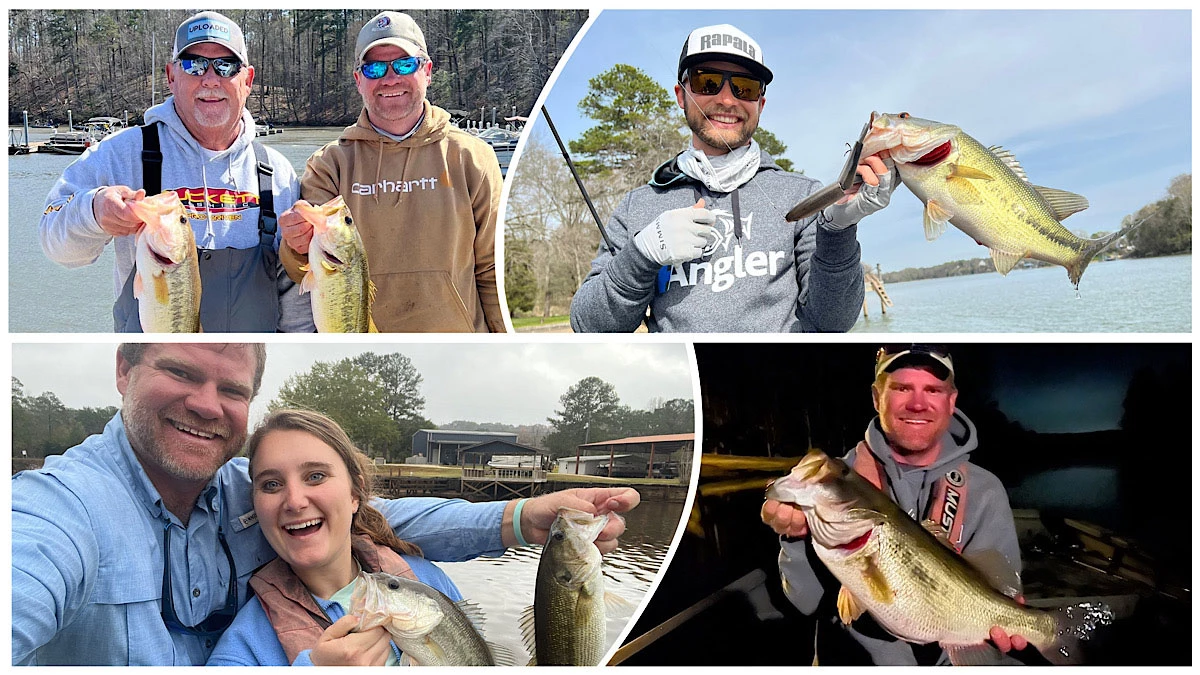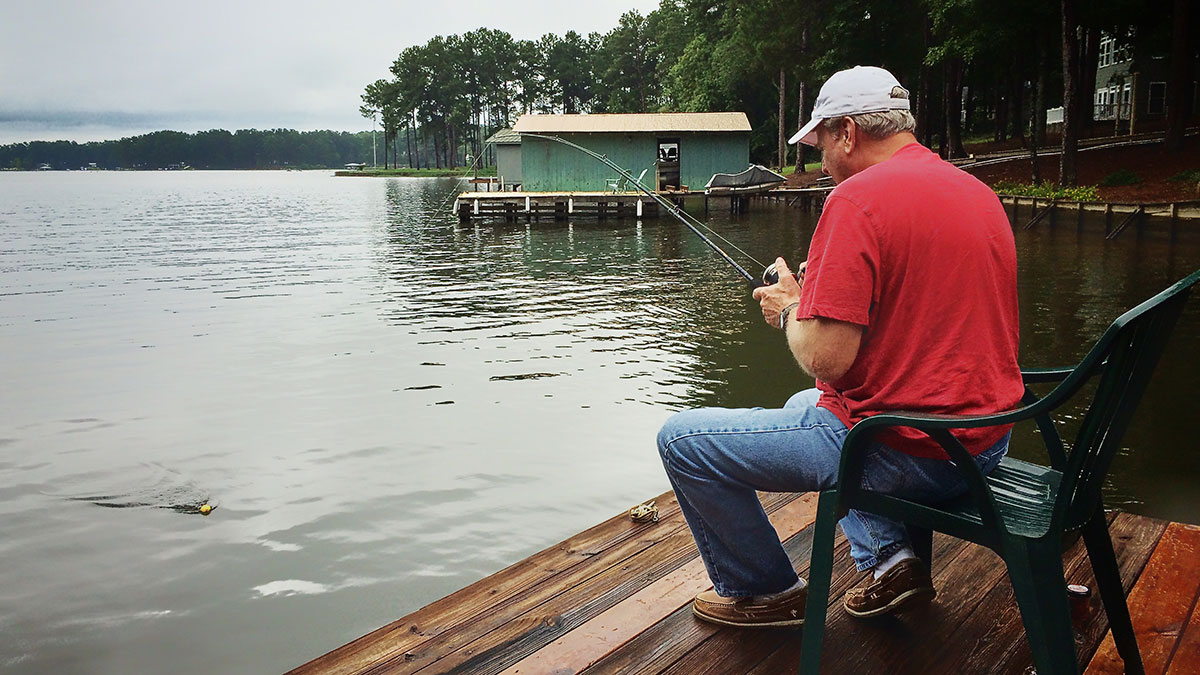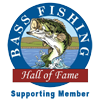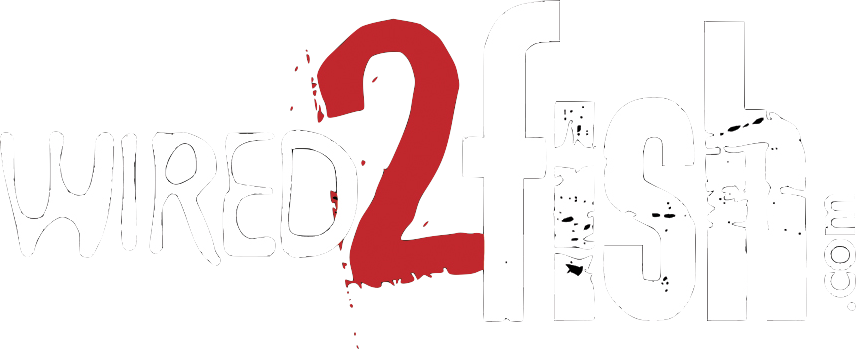Stealthy, subtle presentations are more critical now than ever before when it comes to bass fishing. The recent explosion in fishing pressure paired with radical advancements in technology have us chasing the most keen quarry we’ve ever sought. Thus, finesse fishing and finesse presentations dominate much of the mainstream market and media talking points as of late. But sometimes drawing attention matters more.
But, as with almost everything else in creation, there’s a time to go against the grain. That’s what we’re going to talk about today.
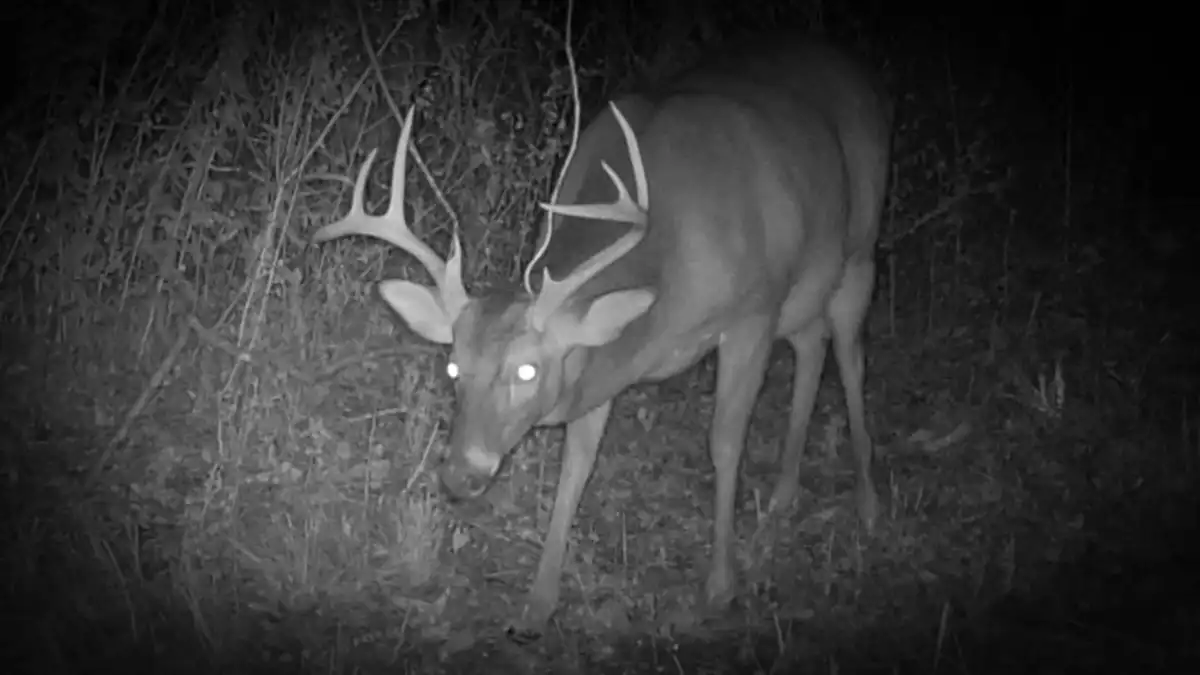
WHAT SPAWNED THE IDEA
I’m in a constant search new material around fishing. I’ve been at this for a long time now, creating bass fishing content for the better part of two decades. In an effort to break the monotony and to (hopefully) create more interesting and helpful content, my mind is almost always on, looking out for new techniques and listening out for ways to relate other things to bass fishing.
While doom-scrolling on Instagram recently (an activity I abhor as the waste of time it usually is, but still find myself caught up in from time to time), I heard something pretty interesting, and it revealed the reasoning behind a subconscious tendency in my approach to bass fishing that I had never really pieced together before.
A hunter was talking about a little trick he uses to draw deer in close to him when bow hunting from a persimmon tree. For those that don’t know, persimmon trees are native to much of the US and bear a small fruit by the same name that is a delicacy to deer. This hunter, when able, finds a persimmon tree to hunt from and pockets a few of the fallen fruit before climbing into his stand.
When a deer comes into view, but is still out of rang for his bow, he drops one of the persimmons, which makes a distinct sound when it hits the forest floor. The deer hears this unmistakable dessert bell, and unwittingly heads straight towards the sharp end of the hunter’s little spear. This wasn’t just theory, he had a video of this working flawlessly on a doe. Very cool proof of concept.
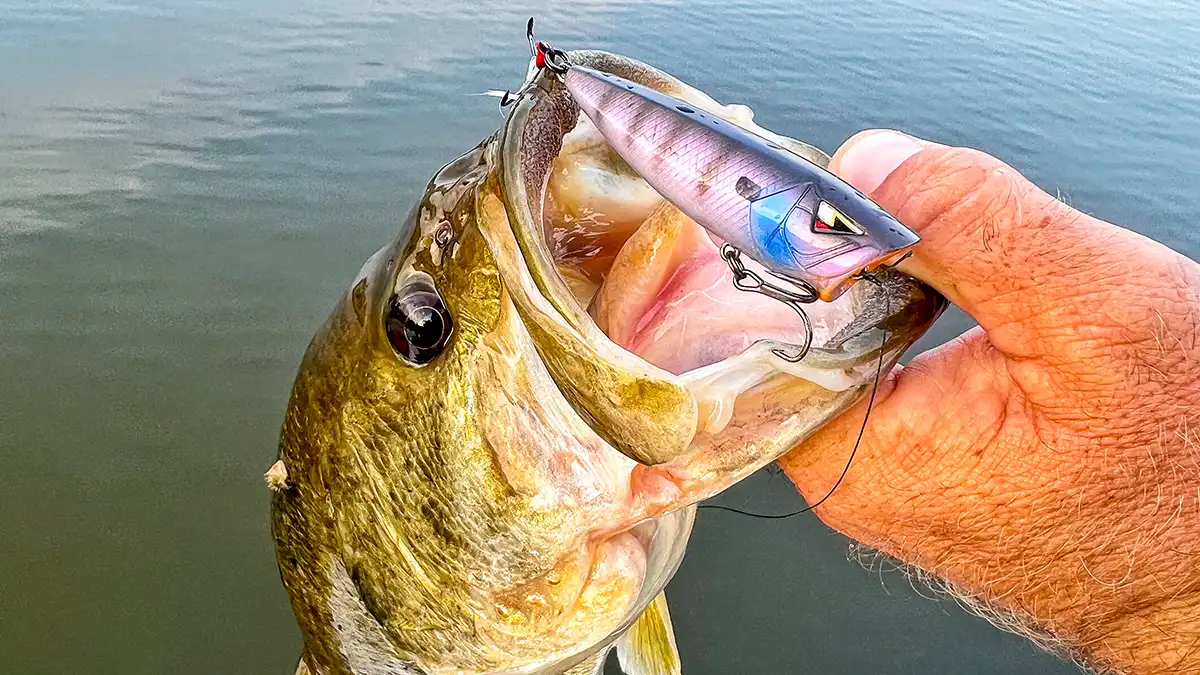
HOW DOES IT APPLY TO FISHING
After watching this video, my mind began to wander, sifting through memories for times I might have experienced a similar phenomenon in fishing. In the same way stealth is important in fishing, it’s likely even more critical in hunting, as these skittish creatures are extremely aware of their surroundings. But this hunter had used the deer’s excellent hearing against it. Is there a time to do this when fishing as well?
The short answer, absolutely. A couple instances came to mind fairly quickly. And I’m sure that many of you could offer up a couple as well, or that some are beginning to emerge in your consciousness for the first time while reading this.
Though subtle casts and presentations are often very important, I’ve seen first hand that bass respond well to a bait making a splash upon entry in a few situations. And I’ve seen one of the best of the best exploit this too, the late, great Aaron Martens. Let’s start there.
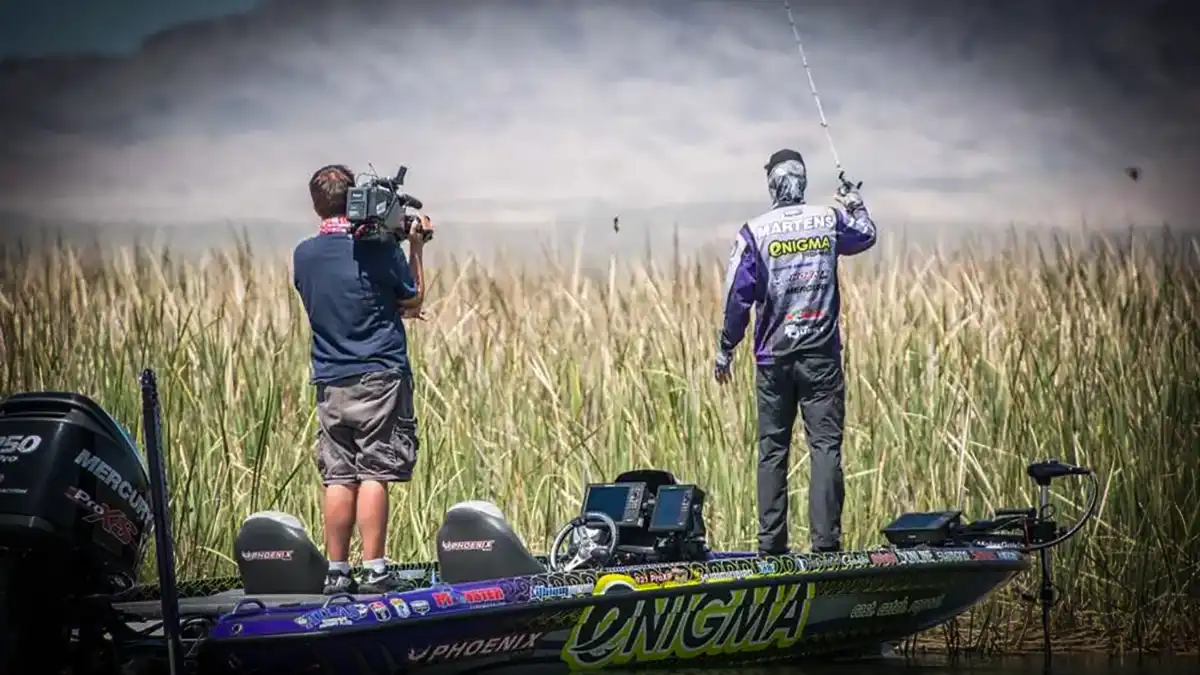
A BIRD IN THE BUSH IS WORTH … $100,000
I was covering the Bassmaster Elite Series on Lake Havasu in 2015, which Aaron Martens won by targeting bass around the stalky reeds that line sections of the Colorado River on the north end of the lake. Martens was in his element, dialed into something different.
Arguably the best finesse fisherman of all-time (this guy would have likely lit up at the idea of fluorocarbon strength-ratings coming in ounce increments instead of pounds), no one understood better or campaigned more for the need of stealth in bass fishing. But, in this tournament, a little splash won him $100,000.
Blackbirds were nesting in the reeds where Martens was fishing. He reasoned that the bass in the area were eating these birds, and found feathers in his livewell midway through the event to prove out his theory.
Using a 3/4-ounce weight and Zoom Speed Craw at times, as well as a Strike King Rage Craw at others, he flipped these reeds, allowing the bait to splash upon entry to mimic a baby blackbird falling from a nest and into the water.
In his own words:
“You don’t want to go back in there too early,” Martens said. “They can’t see real good. It’s like a jungle. There’s almost no holes. You make a 50-foot pitch back in there. If you hear it hit the water, you’re good.”
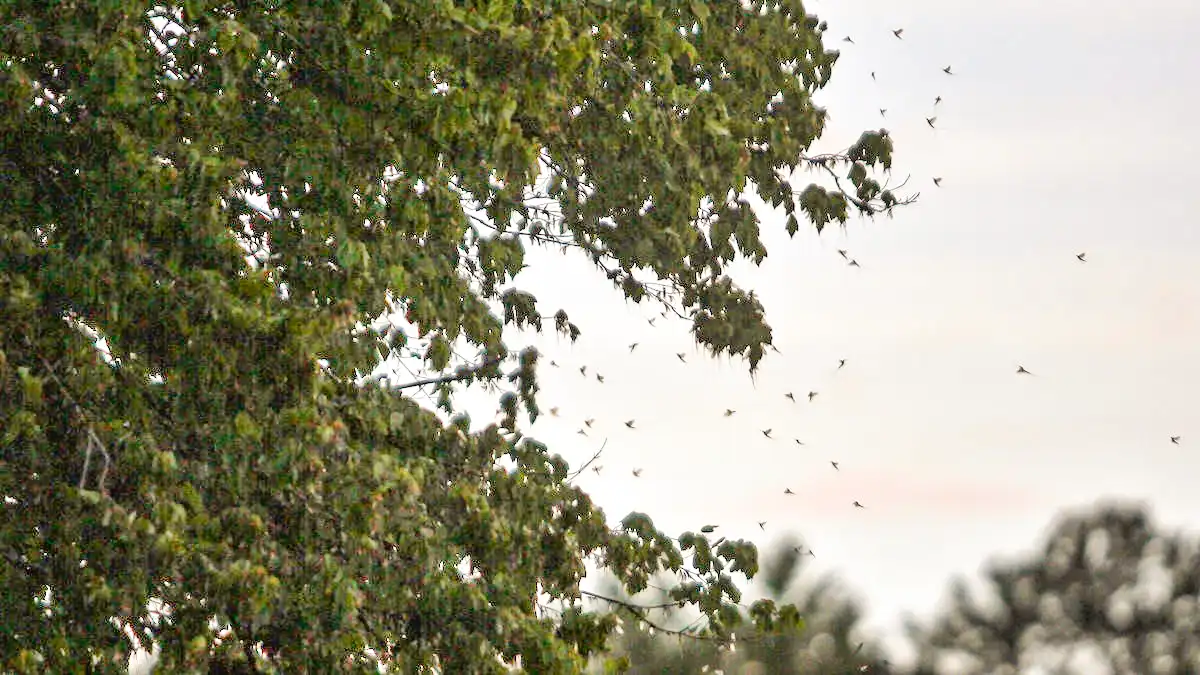
SPLASH THE INSECT HATCHES
When fishing around an insect hatch, say mayflies to pull from my personal experience, making an initial splash with the cast of your topwater bait is very beneficial. We’re not talking bowling ball level splash, but there’s no need to be super stealthy, as that initial splash will actually alert the fish to the presence of the bait and draw them to it.
If you’ve never experienced a mayfly hatch, it’s an extremely chaotic and competitive environment. There are often dozens of bream, catfish, crappie and small bass eating the insects, with the occasional explosion of a large bass assuming its position in the food chain.
Letting a popper land a bit harder than you might in other situations can draw the attention of a bass. It’s a good practice to just let the bait sit there for a moment, to give the bass a chance to hone in on it. Then, give it a little twitch and, quite often, a bass will eat it right away.
Another cool way to draw the attention of a bass in this type of setting is to skip a bait, like a hollow body frog, aggressively across the top of the water. The subtle skipping of a wacky rig isn’t required here, and is in fact less effective. The more noticeable skip of a larger topwater likely looks like a fleeing bait fish that’s on the run from another predator, something that instinctually sends a bass into a feeding frenzy, to make sure it outruns its competition to the vulnerable prey.
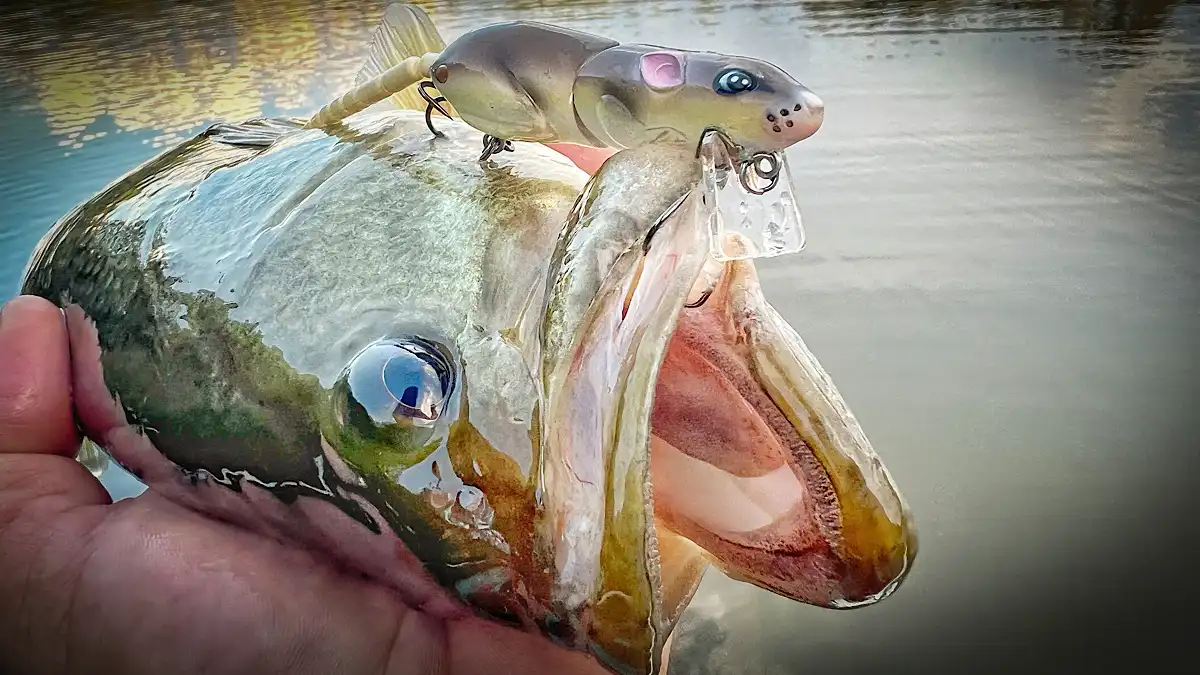
WAKE ‘EM UP
The blackbird pattern of Martens keyed on the natural sound of prey falling from above. When fishing with big wakebaits, it’s important to remember that these baits are often associated with large, non-aquatic prey as well. Wood rats and other big wake baits mimic rats, squirrels and chipmunks that all make a splash when they enter the water.
Don’t get me wrong, there are times when laying these big baits gently in the water in front of a visible bass is paramount for getting the fish to bite. But when blind casting around deeper docks, bushes and laydowns, letting the big baits splash as they hit the water, the same way a rodent would as it fell in, is a great way to call a bass to a bait and effectively move the strike zone of the fish.
When fishing around heavy cover, this is actually a great way to increase your landing ratio, moving the fish a little farther from the hazards. And, there are times too when you’ll spot a fish at the last second that is headed straight towards you, only a couple heartbeats away from blowing your cover. In these situations, it’s often too late to lead the fish with a cast aimed ahead of it.
Instead, you can lob the bait a little behind the fish and actually use the sound of the bait landing in the water to turn the fish, redirecting it away from you and creating a more committed strike than you might have gotten if the fish had to venture closer to you to eat the bait.
OTHER THOUGHTS ON SPLASHING
There are other instances too when making a little noise with the presentation of your bait can help, like when fishing around bluegill beds or throwing topwaters out in open water. The purpose of this piece is not to create a comprehensive list of these situations. It’s instead intended to layout a few examples of this in hopes that these stories get your wheels turning, so that you can see the value in going against the grain and perhaps unearth some similar techniques.
If you’ve seen a time when the more aggressive presentation of your bait has helped you catch more fish, we would like to know about it on social media. And, who knows, we might share your tips with the rest of the Wired2Fish faithful. We could always use a little help getting our wheels turning too.




